Table of Contents
Join Thousands of Hotels Thriving with roommaster
The transition to roommaster is straightforward and efficient. Our implementation team handles data migration including reservations, guest profiles, and historical information.

As the second-largest online travel agency worldwide, Expedia once focused mainly on hotel bookings, flights, and car rentals. Over time, it expanded to include vacation rentals. Today, you can list your short-term rental on Expedia and reach travelers searching for more than just traditional hotels.
In fact, lodging brings in the highest revenue for Expedia Group. In 2024 alone, hotel and short-term rental bookings generated nearly $11 billion. That number represented about 80% of the company’s total global earnings. The demand exists, and travelers use Expedia every day to book their stays.
If you want to appear on this platform, follow the right steps to create a listing that performs well. In this article, you’ll learn how to add your property to Expedia, use it to drive more bookings, and set it up to attract the right guests.
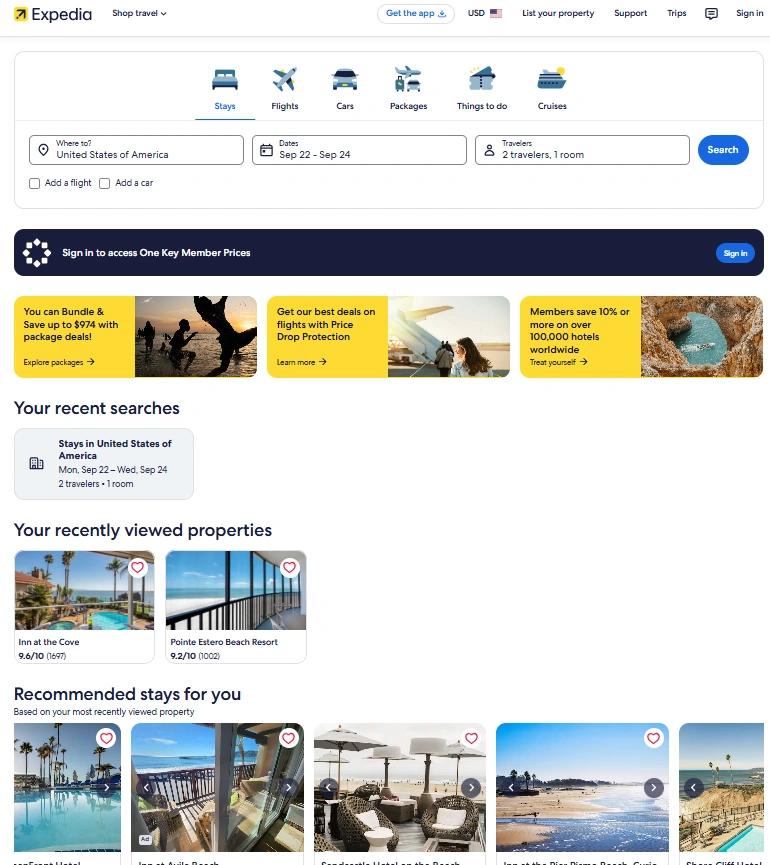
An Expedia listing gives accommodation providers an online profile on Expedia.com to attract and convert travelers into guests. Many small hotel owners also refer to it as an ‘ad on Expedia,’ but the listing does far more than just advertise your property.
With 10 million+ average daily visitors and 1 billion+ average searches per month, Expedia connects your property to one of the world’s busiest travel marketplaces. Here are some Expedia hotel listing benefits you should know about:
Getting your hotel listed is easier when you know what to list on Expedia. Your approval comes through faster, your listing is more appealing, and bookings come in quicker.
Here is an Expedia property listing requirements checklist to tick off before listing your property on Expedia:
Once you get all the requirements in order, follow these steps to list your property on Expedia:
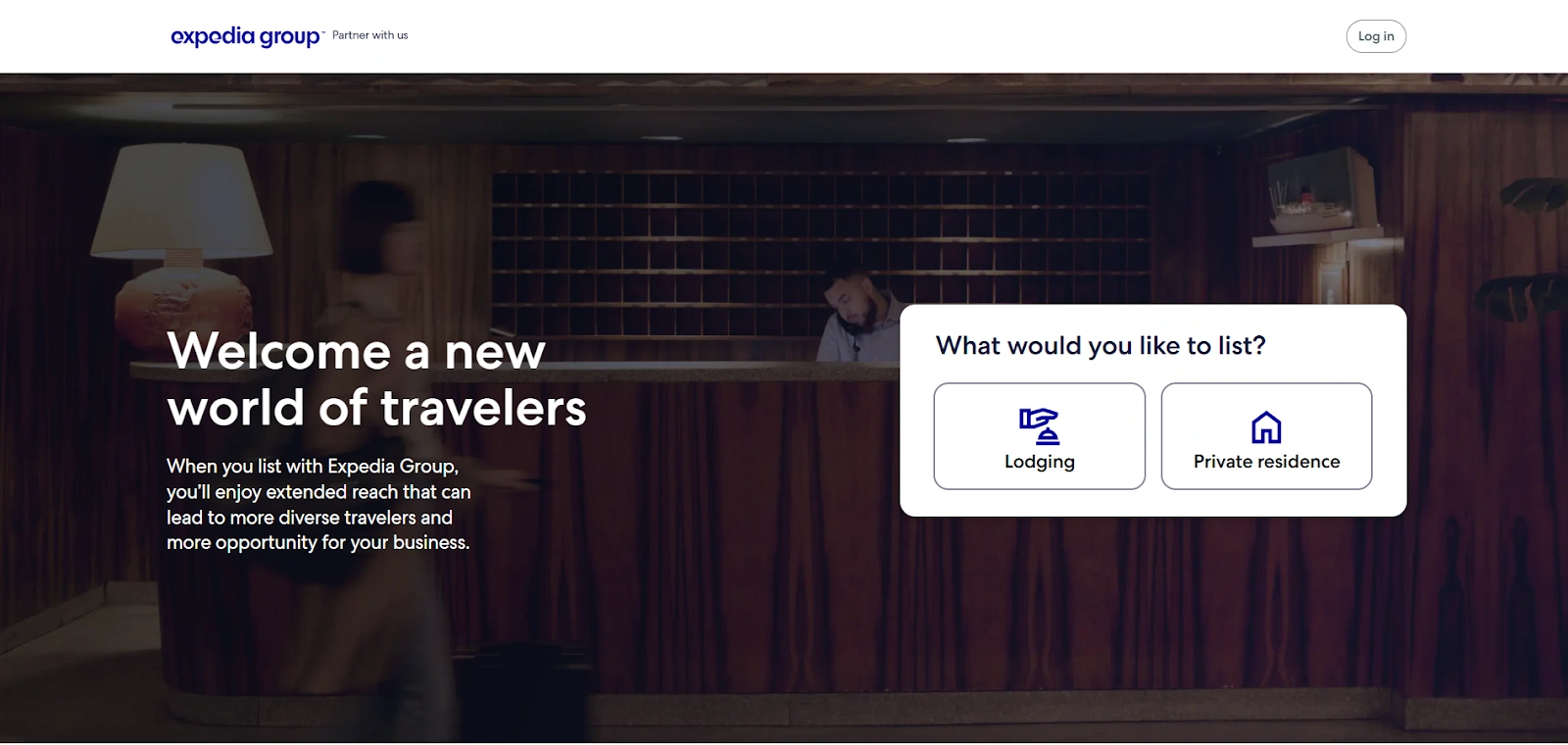
Here is how to set up Expedia account:

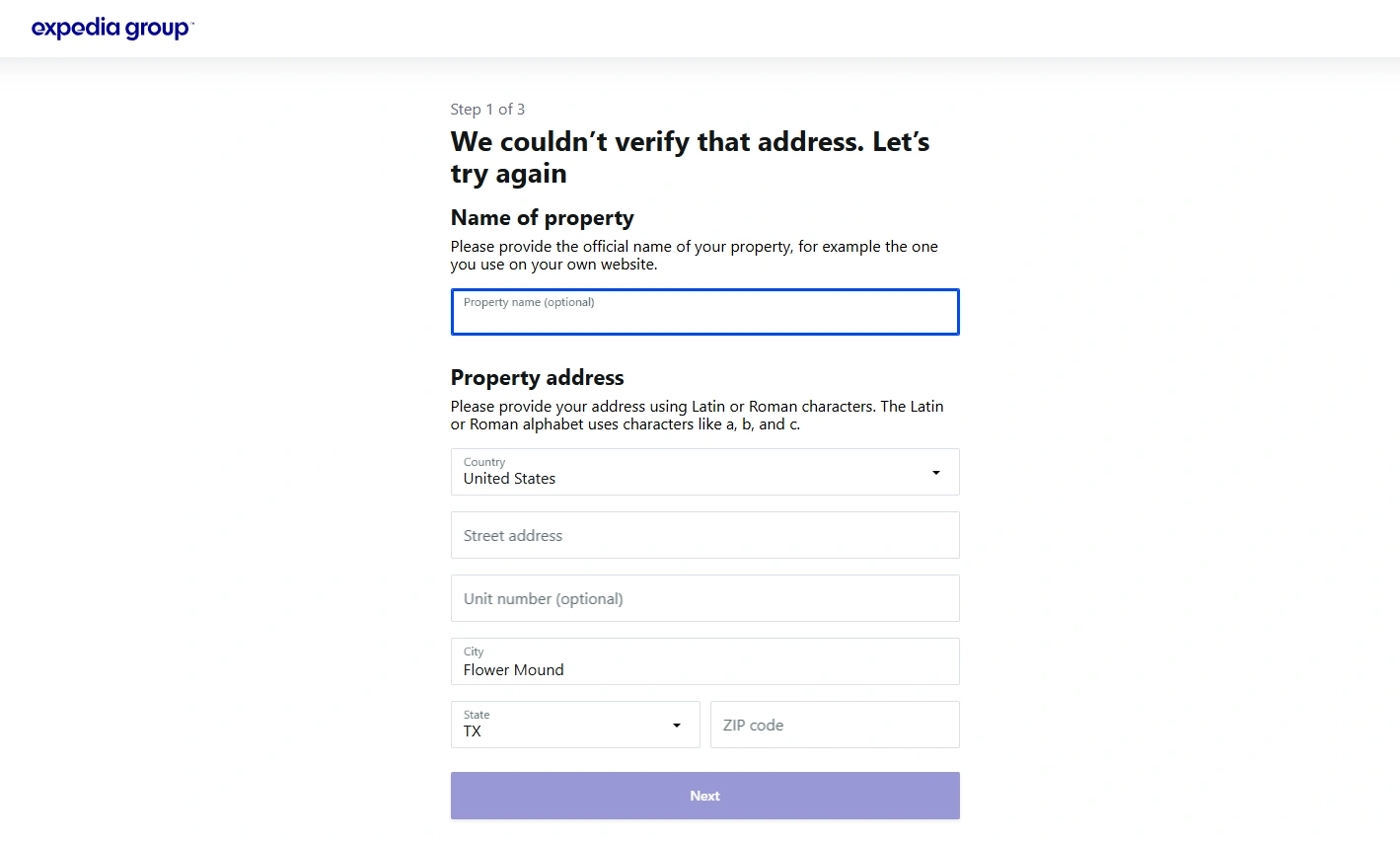
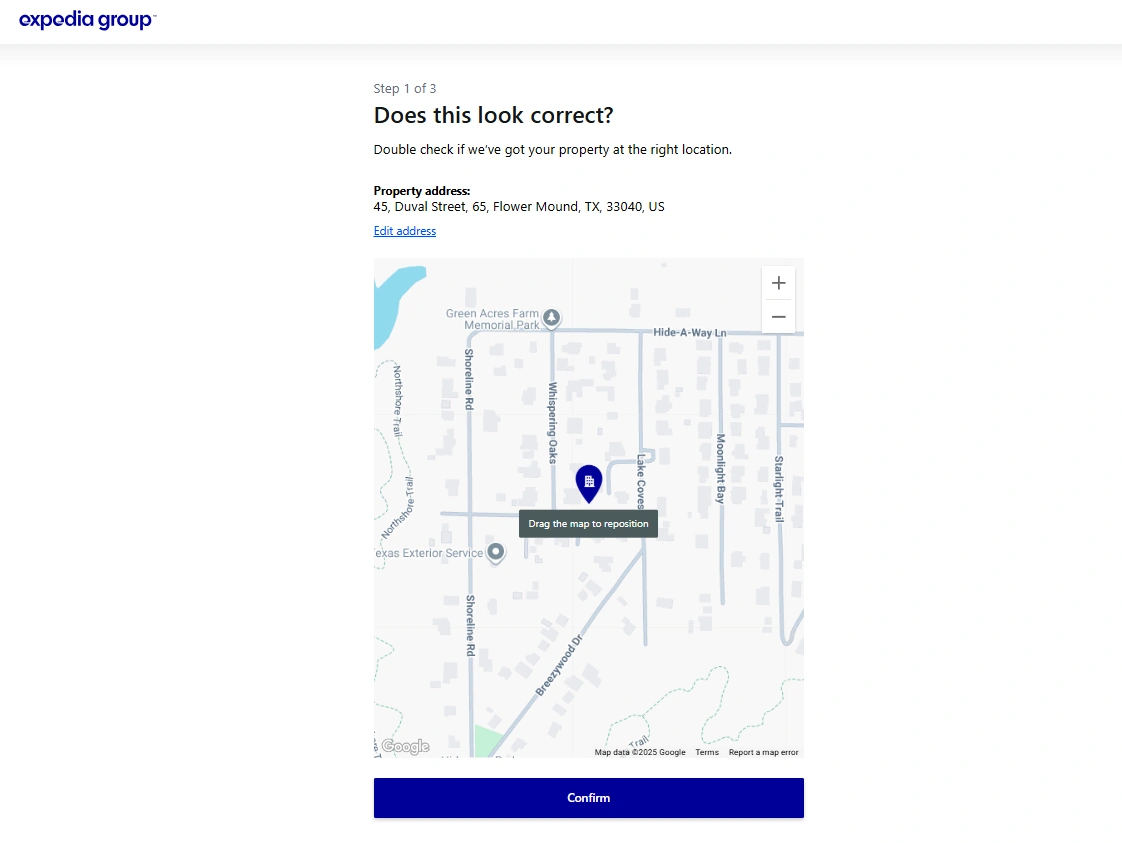
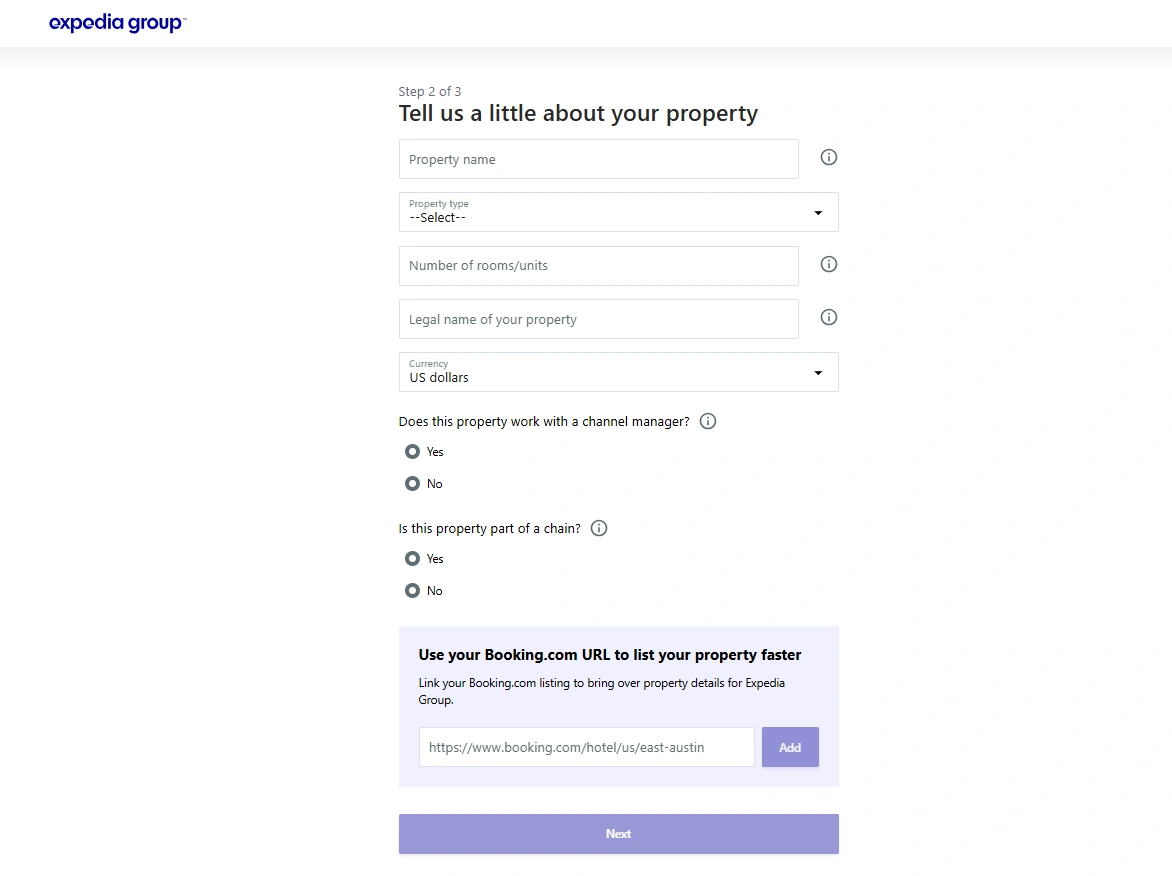
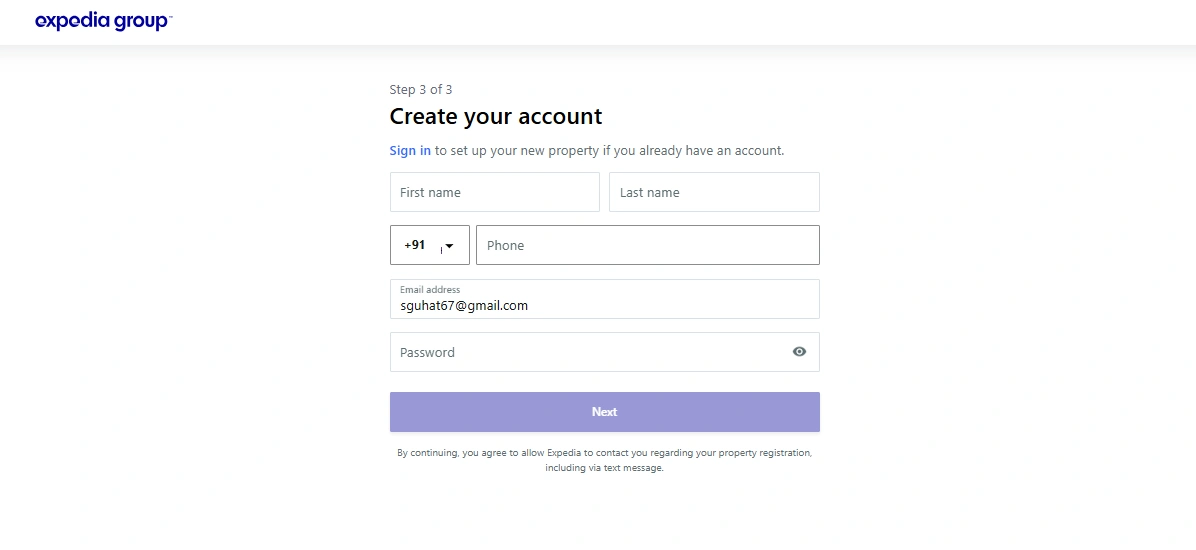
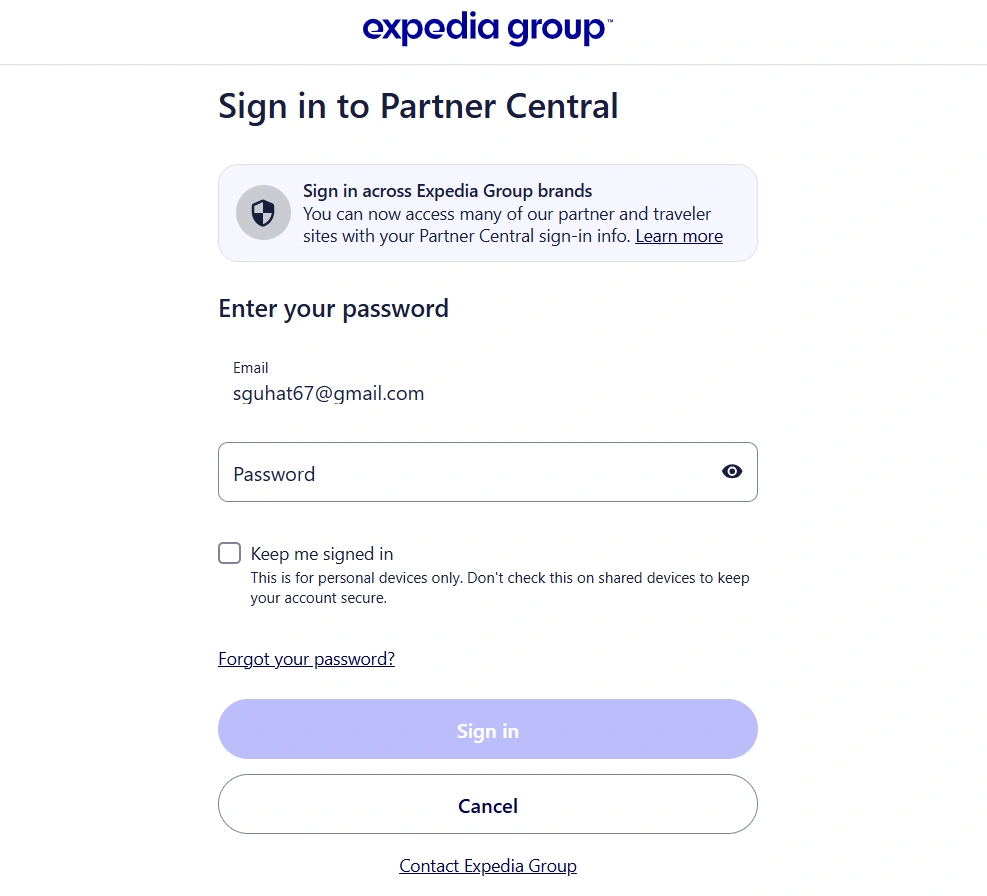
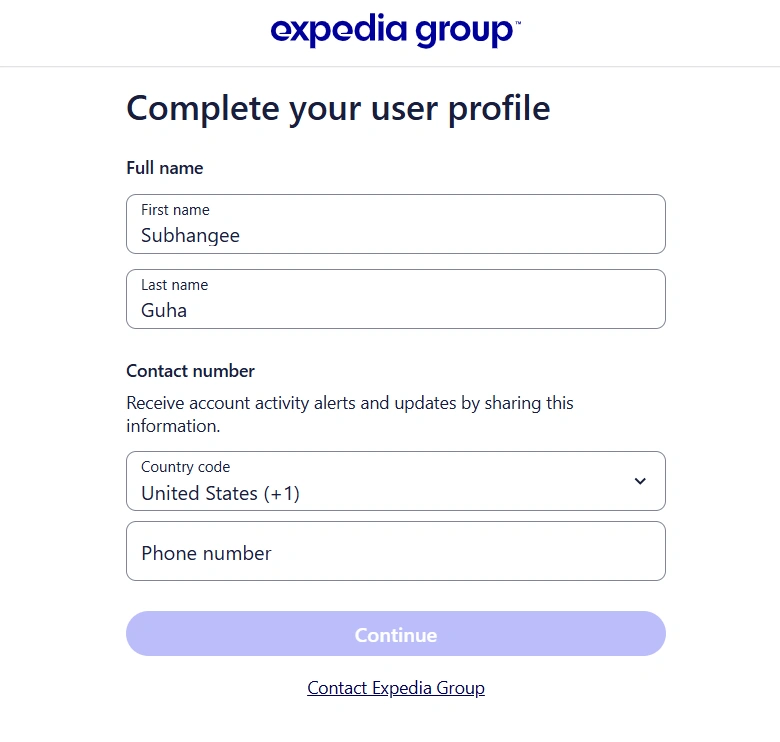
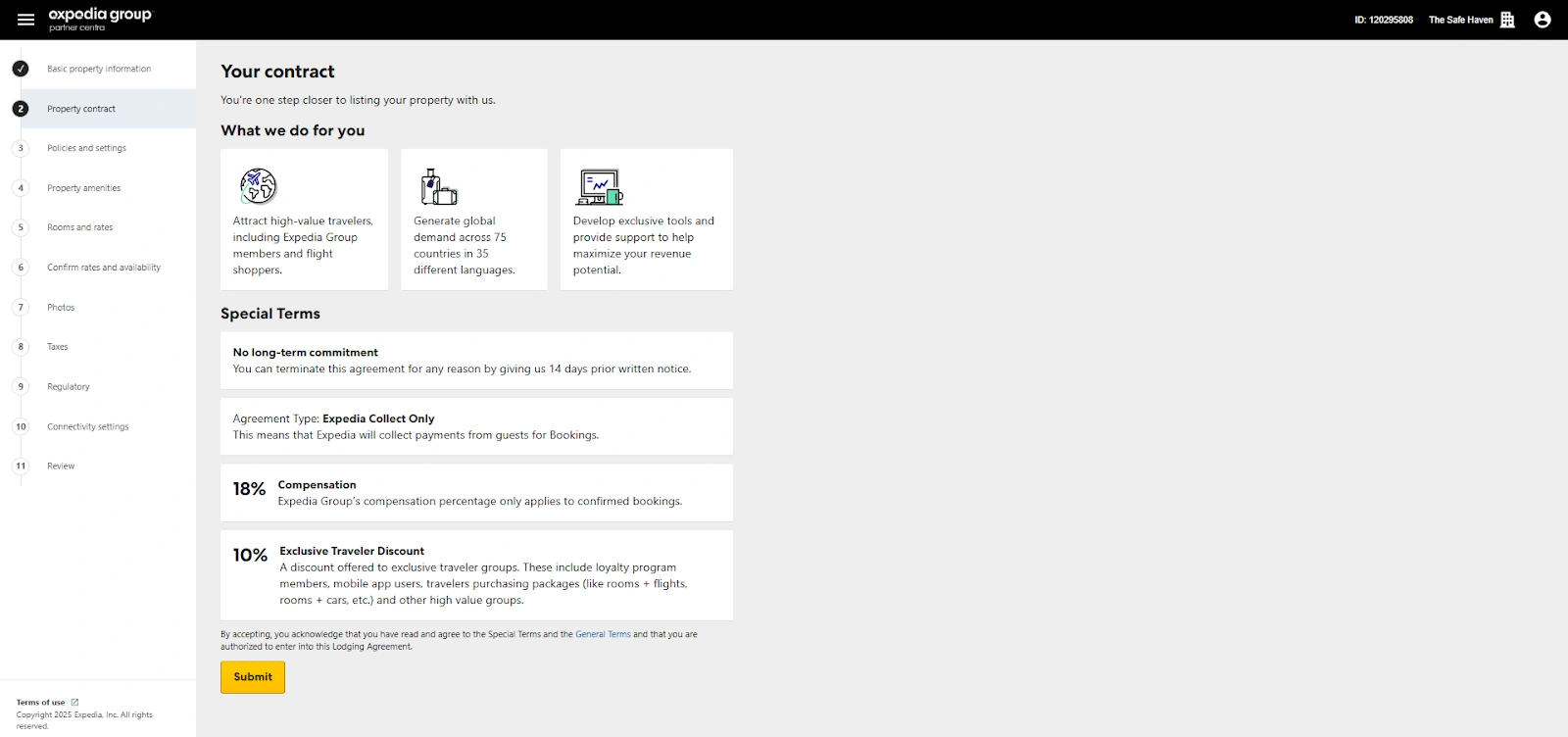
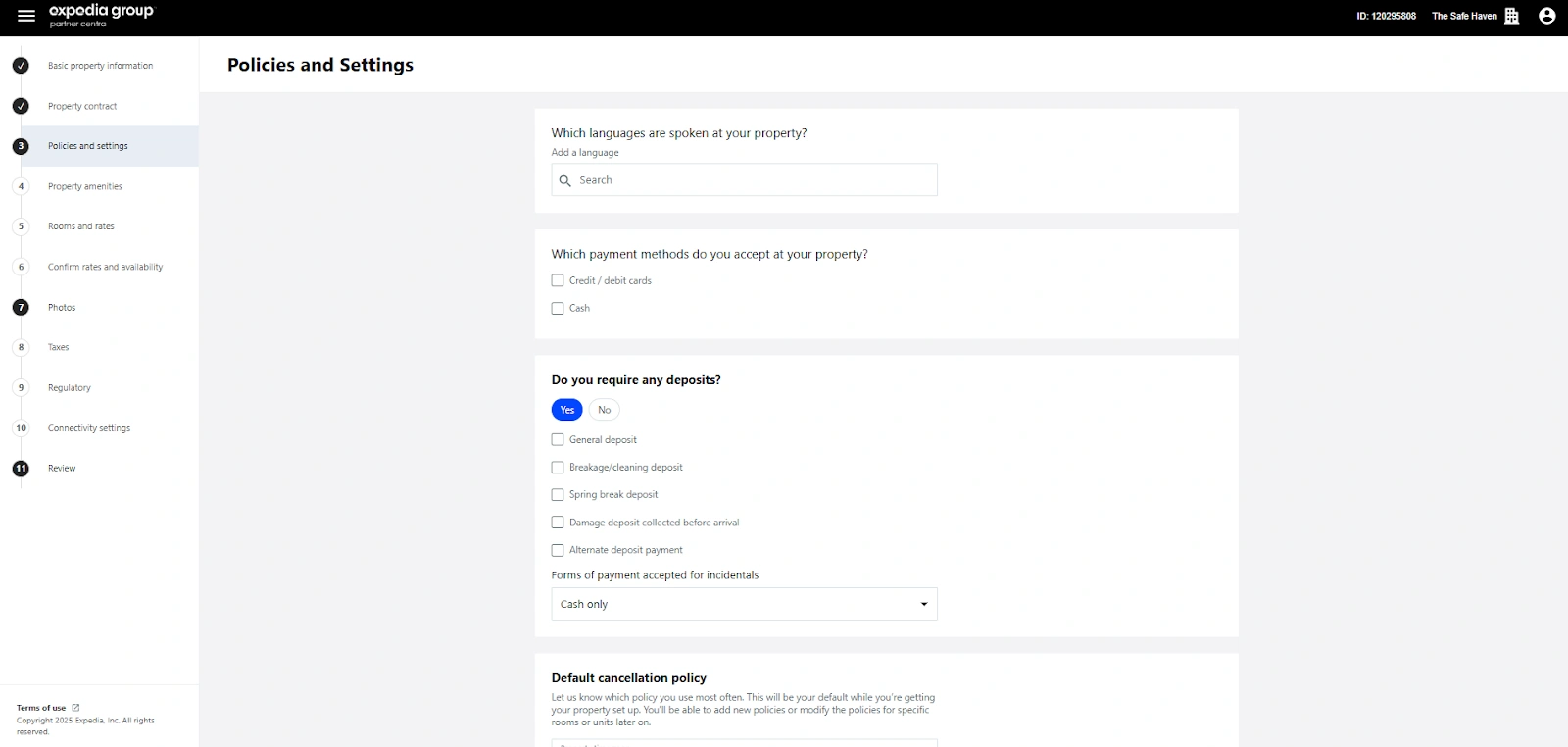
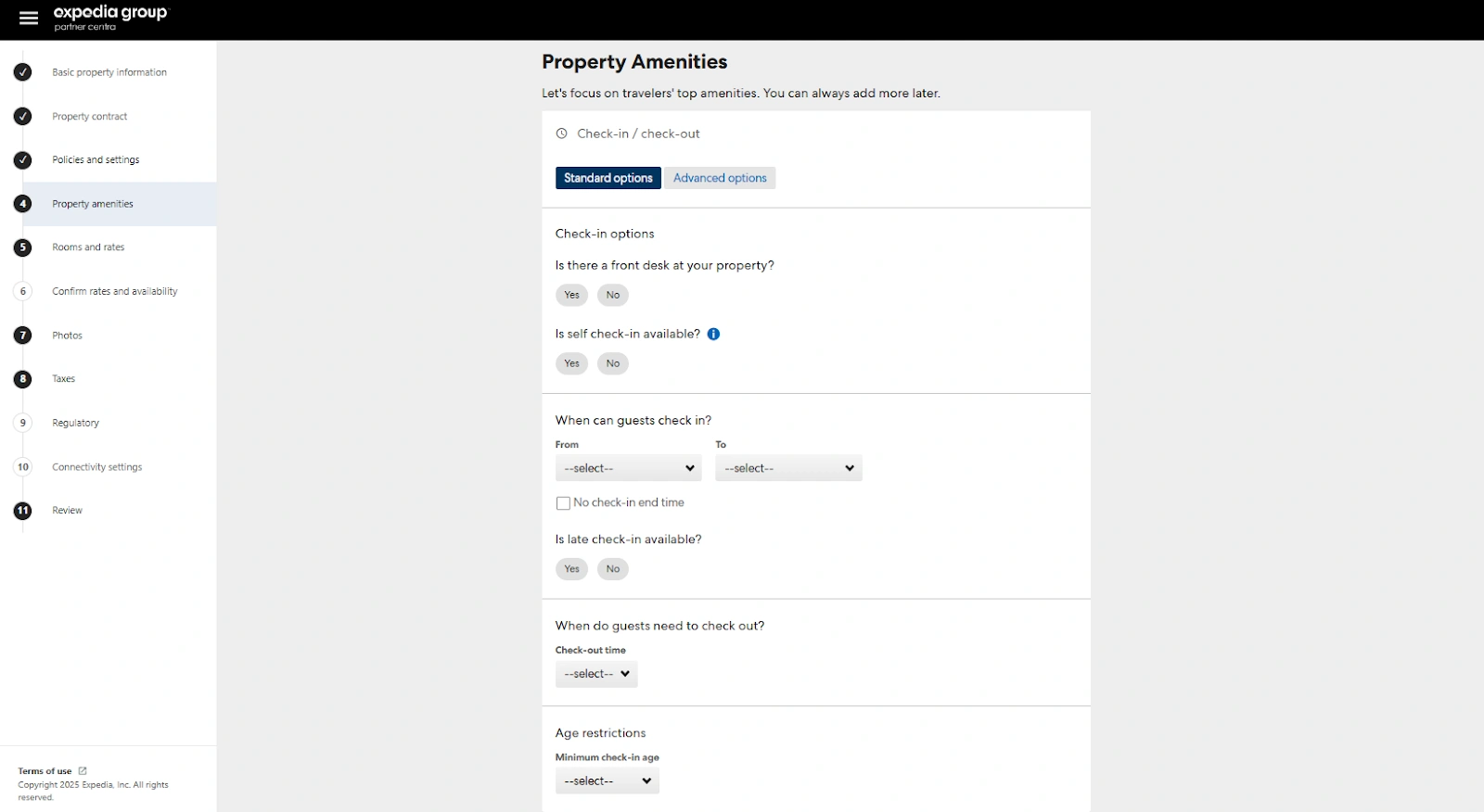
Now you set rates on Expedia. You will also edit your property’s availability in this step:
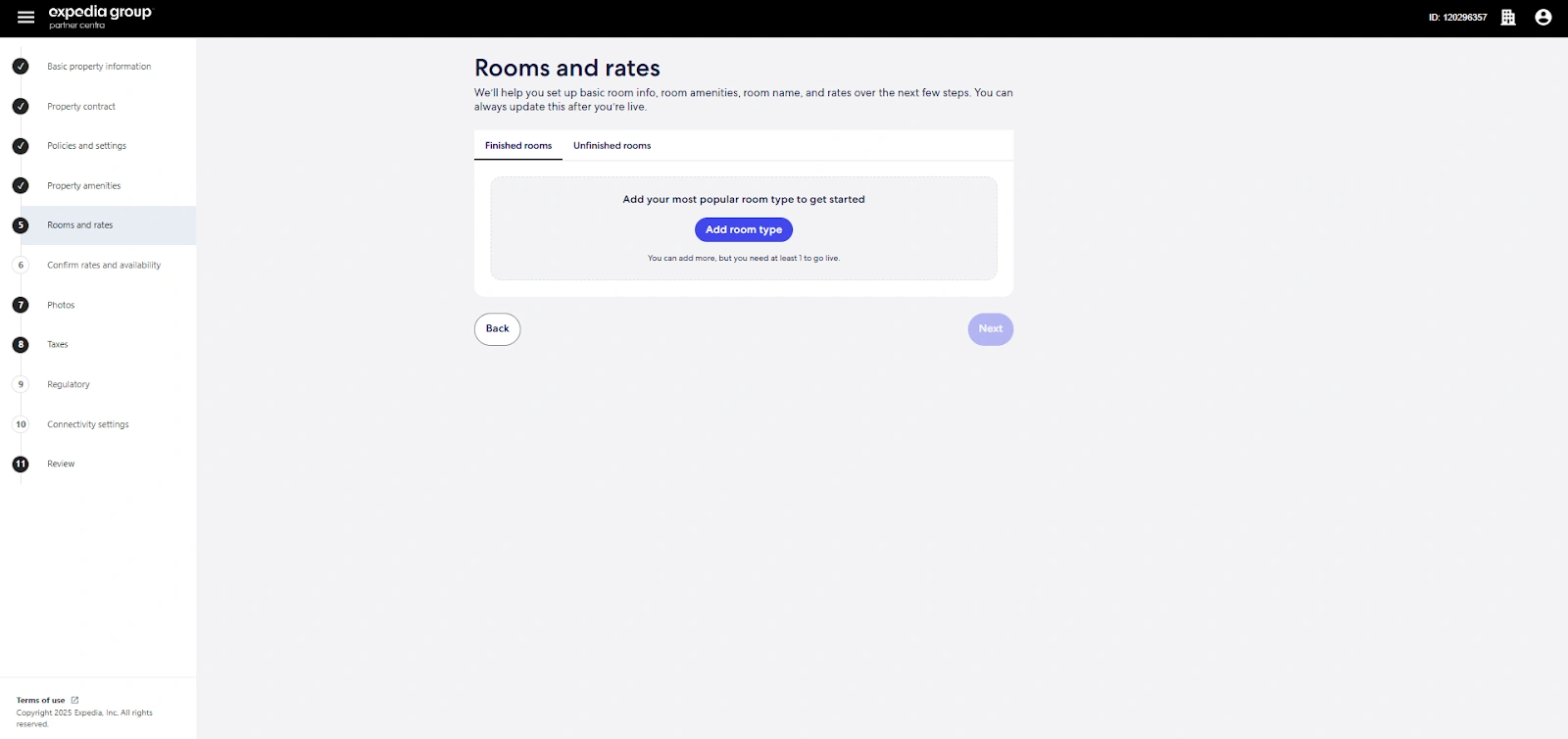
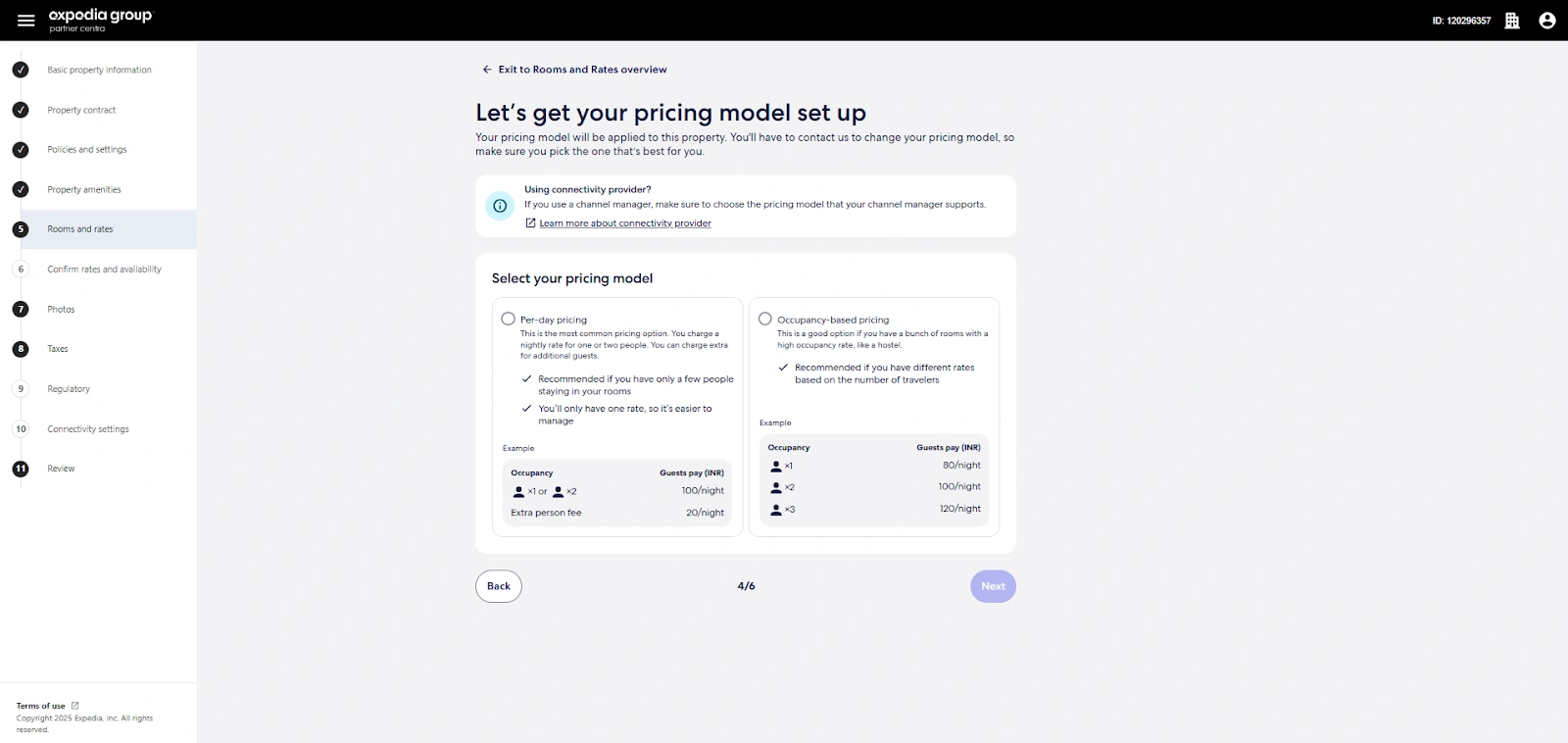
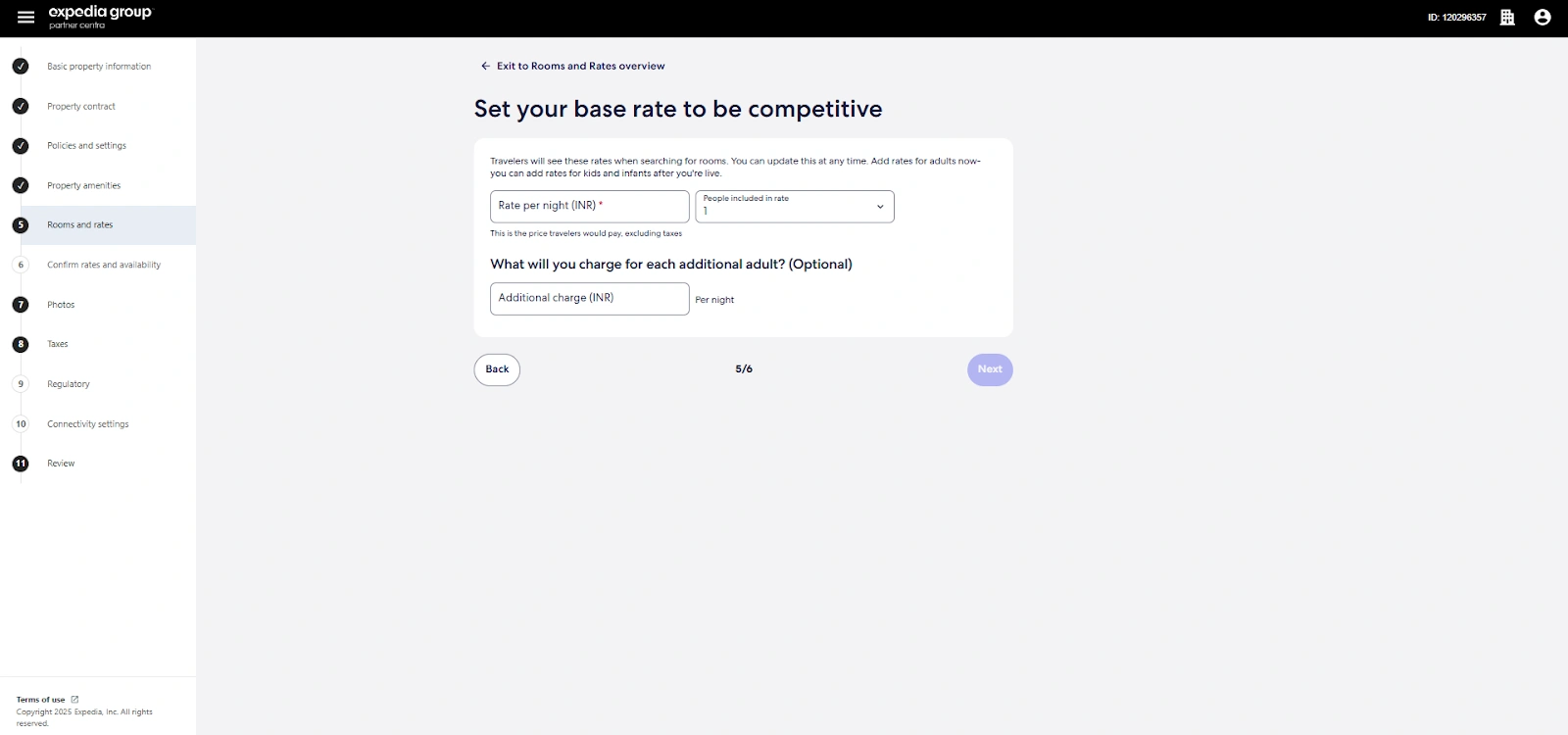
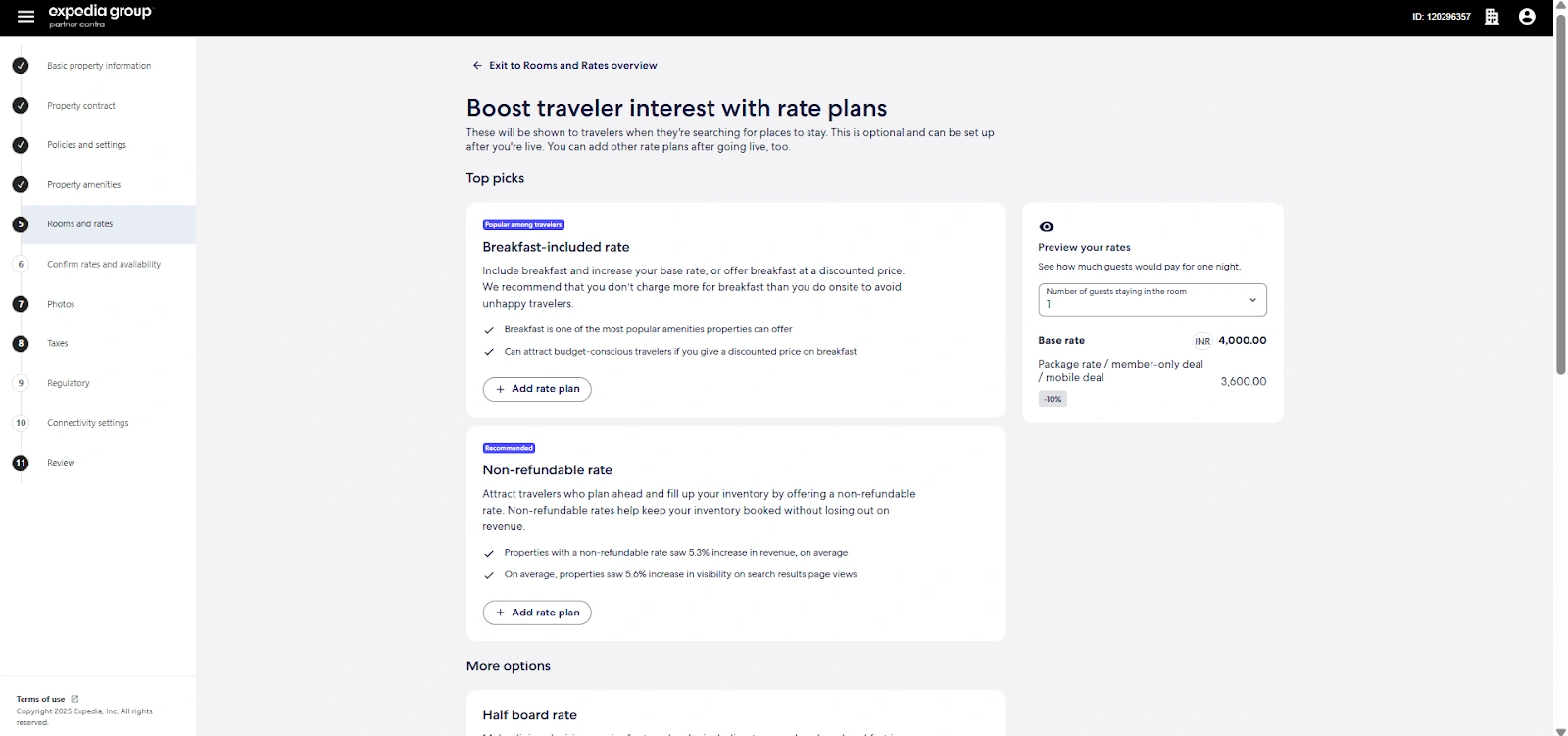


Now you can upload photos on Expedia:
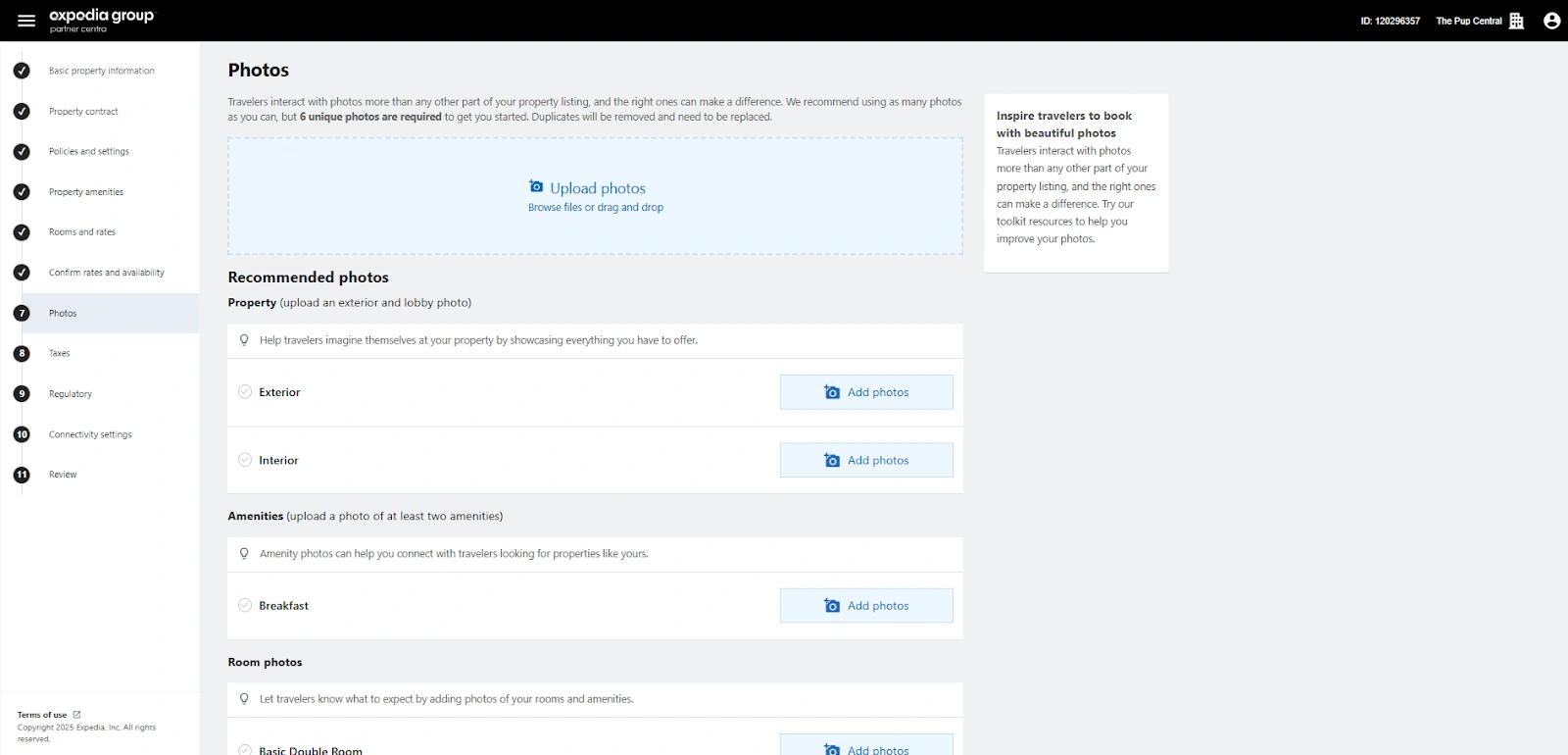
Here are some tips and Expedia image requirements to make your listing look more appealing:


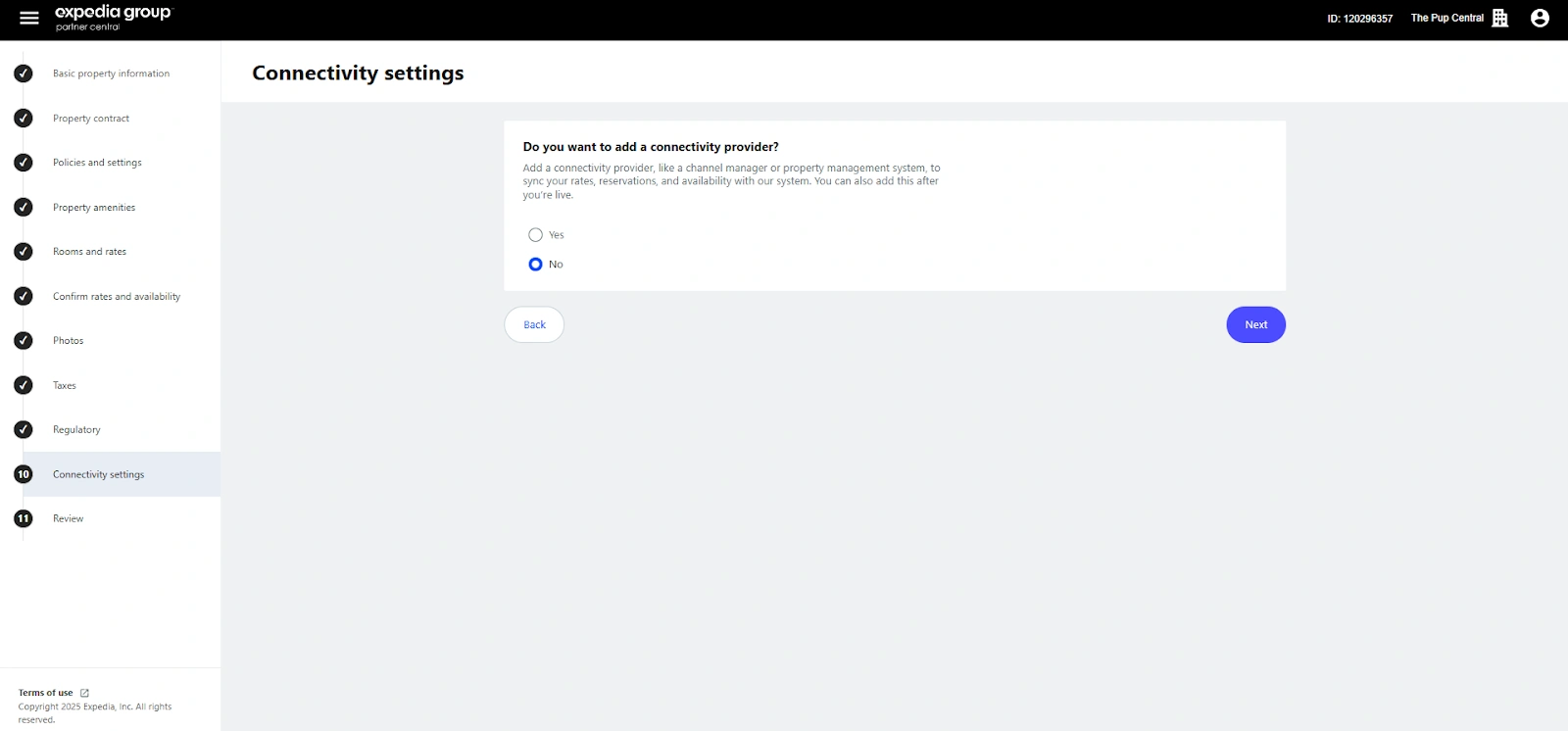
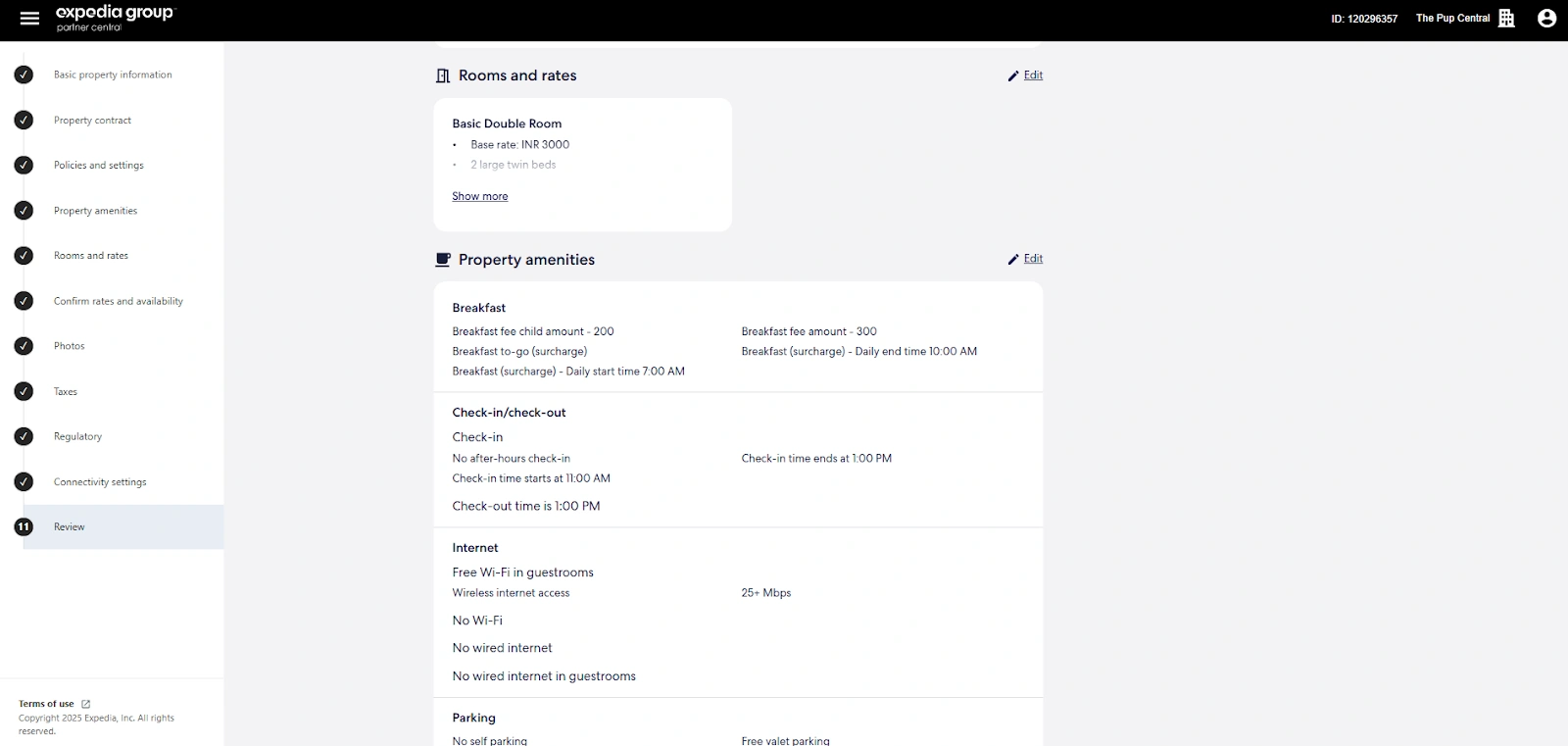
Now Expedia will let you review all the details and edit any possible inaccuracies. Make sure you go through each element carefully. Once you are satisfied, click “Next”.
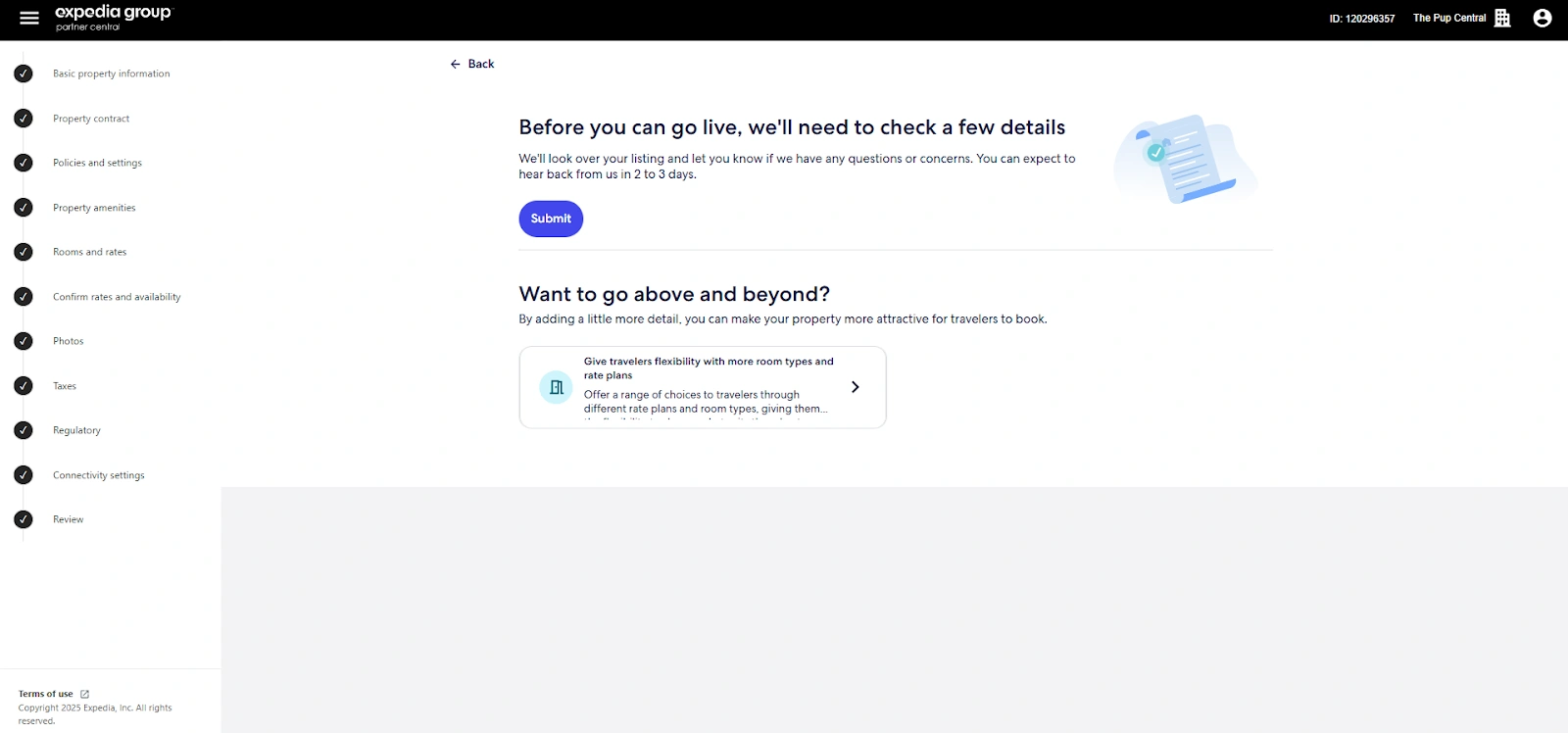
The platform will verify your details, and if everything is correct, it will publish hotel on Expedia. Typically, Expedia listing approval comes through within 24 hours.
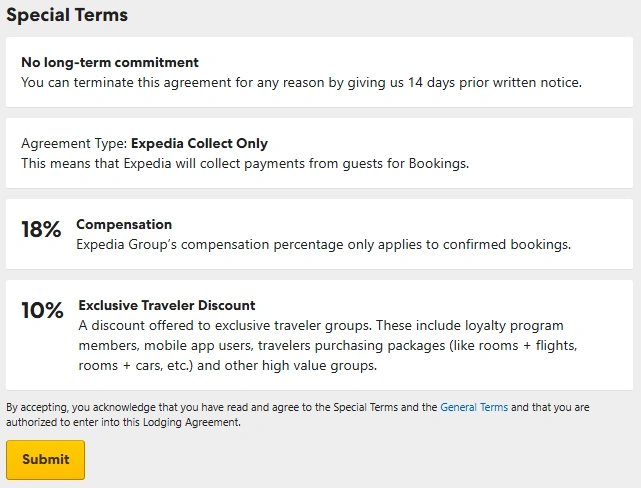
Expedia commission rates are 18% commission on every confirmed booking you get through its platform. You can also opt to pay an additional fee to promote your property directly within the Expedia commission model. These marketing options involve smaller additional charges, but many property owners recover that cost through increased bookings.
A listing is just the start. You must optimize your Expedia listing to build trust and stand out. So, here are some Expedia listing tips to make the difference between someone scrolling past and clicking “Book Now.”
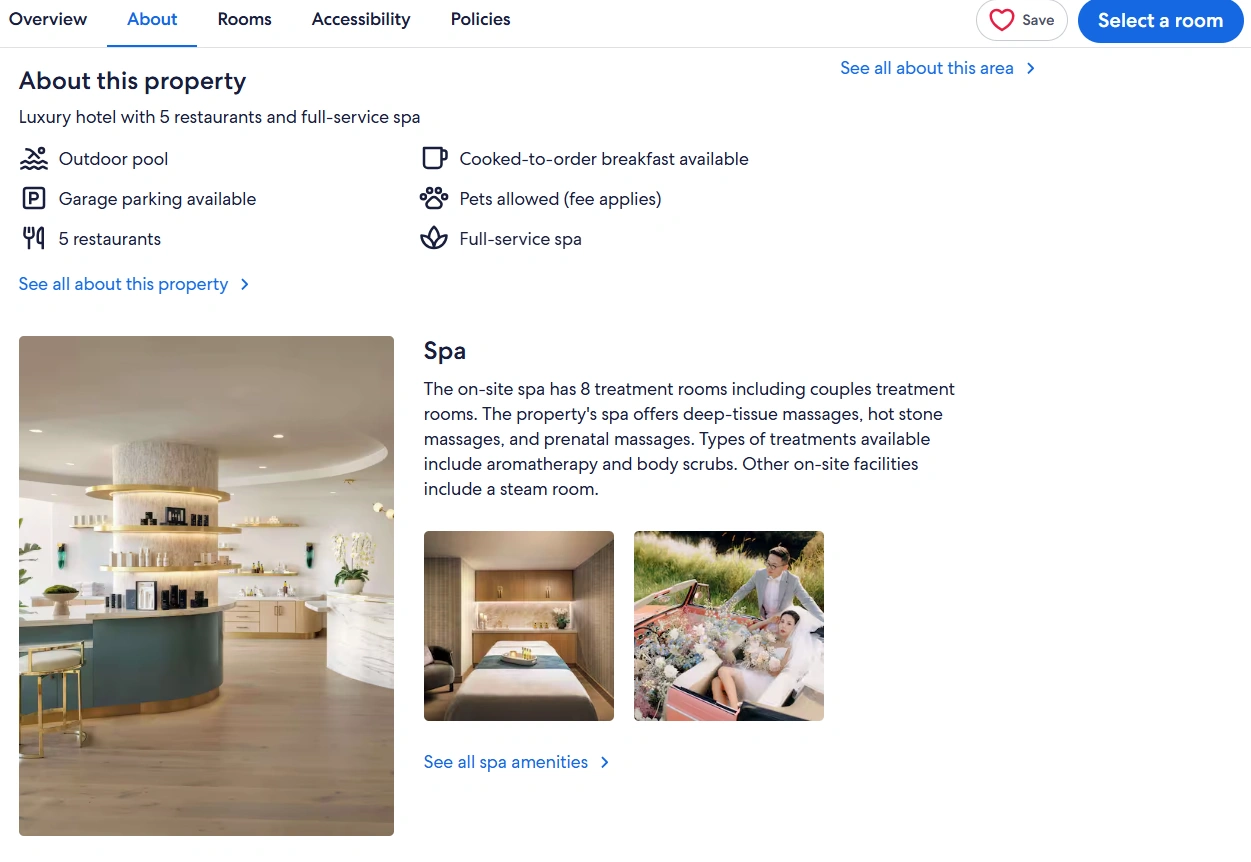
When writing your hotel description, focus on what makes your property unique. Use simple, inviting language that helps guests imagine their stay, and highlight your best features first, such as a prime location, a rooftop view, or a cozy atmosphere. Break text into short sections so it is easy to skim, and include nearby attractions for a more appealing listing.

Your cover photo creates the first impression. So, choose a bright and high-quality shot of your most attractive space, like a premium room or standout amenity. Natural light is always more inviting than filters and heavy edits, so keep things realistic. For extra impact, refresh your main image seasonally to keep your listing looking current and engaging.
Before setting your rates, research what similar properties in your area are charging and position yourself competitively. Flexible pricing for weekends, holidays, and peak seasons can get you more bookings.
Packages and discounts for longer stays will attract value-conscious travelers. However, review your hotel rack rates often to stay ahead of the competition and avoid missed opportunities.
Reviews are one of the strongest factors influencing booking decisions. They give your guests an honest peek into your hotel and its services.
So, make it a habit to respond to every review. Thank guests for positive feedback and acknowledge their highlights. Address complaints with a solution-focused approach. Showing that you care builds trust and reassures potential guests. You can also gently encourage satisfied guests to leave a review at checkout or in follow-up messages to boost your visibility.

Think of Expedia Partner Central as your hotel’s dashboard. Here you can keep everything up to date, make quick changes, and see how your property is performing. The more actively you manage listing on Expedia, the better results you get.
Your calendar is one of the first things guests rely on. Keeping it accurate helps you avoid double bookings and missed booking opportunities. Use Partner Central to adjust room rates and set seasonal prices. Actively close out dates when rooms are not available. Regular updates also bump up your property more often in traveler searches.
A hotel listing is never something you set up once and forget. Partner Central makes it simple to refresh your descriptions, swap in new images, and add newly available amenities. Every time you make a small improvement, you give travelers one more reason to choose your property.
Partner Central gives you access to reports on bookings, cancellations, and guest reviews. Check these numbers regularly so you can spot patterns, adjust your pricing strategy, and improve details that make your listing stand out.

Once your listing goes live, you must focus consistently on Expedia listing management to attract more guests. These tactics help you boost visibility and convert more lookers into bookers without wasting time or budget.
Expedia Partner Central gives you the tools to manage your listing, view performance data, and make updates that drive bookings. But once you start working with multiple platforms like Booking.com, Airbnb, Kayak, and Agoda, the process quickly becomes complicated. You have to repeat every change to pricing and availability on each site.
Why go through so much hassle when you can just use roommaster Channel Manager? Instead of logging into each platform individually, you can manage all your listings from one dashboard. Update your rates once, and roommaster PMS pushes those changes to Expedia and every connected OTA in seconds. Room availability adjusts automatically the moment you get a booking, no matter where it comes from.
{{channel-manager-one}}
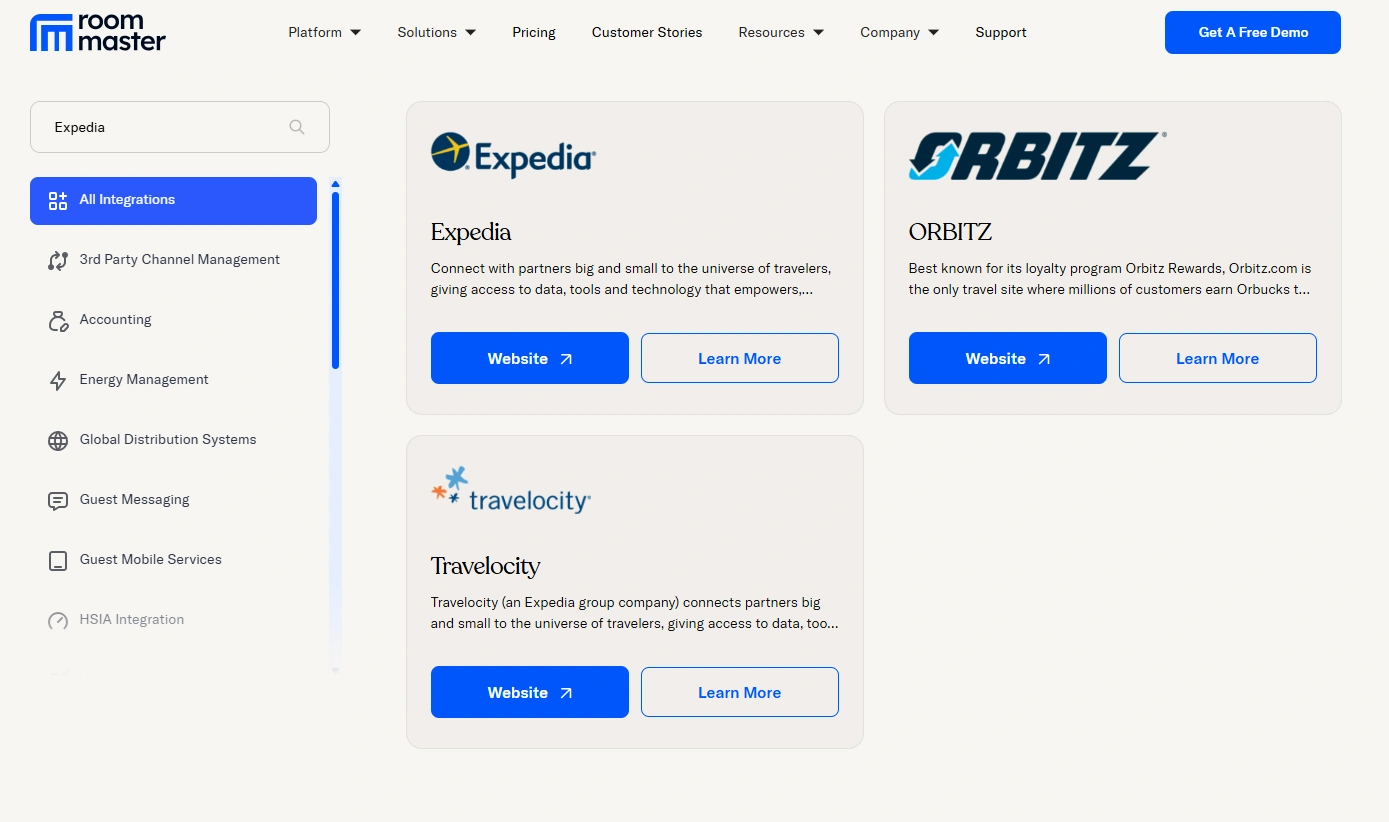
roommaster Expedia integration will keep your reservations, cancellations, and modifications synced in real time. You also get integrations with Expedia’s partner sites like Orbitz and Travelocity.
Plus, with the built-in hotel property management system, you can centralize tasks like rate management, booking restrictions, and closeouts. Once your rooms sell out, roommaster will close your availability automatically.
So, stop wasting time on manual updates. Book a free demo today and make Expedia Partner Central management hassle-free!
A channel manager lets you control pricing and availability across every booking platform you use. Instead of logging into each channel separately, you make changes once and the system updates all listings instantly. It saves time, eliminates manual errors, and helps you avoid double bookings.
Guests compare listings quickly, so your pricing needs to stay competitive. Monitor your competitors, adjust rates for low seasons, and offer packages or deals when needed.
Yes. Your review score affects your ranking and credibility. Encourage guests to leave reviews and reply to each one. A thoughtful response, even to a negative review, shows that you care about guest experience.
No. You don’t need to log into Expedia Partner Central to manage your listing. The channel manager handles all updates for you from one place.
Yes. Almost 80% of Global Distribution System (GDS) bookings come from corporate travelers. Connecting your hotel to the GDS opens the door to high-value bookings and a higher average daily rate, and the roommaster channel manager can help with that.
The Global Distribution System updates inventory across all channels automatically and logs the reservation in your hotel management software. You won’t need to worry about double bookings.
Expedia typically charges between 10% and 30% commission per booking, depending on your agreement, location, and property type. This fee is only charged after a confirmed stay.
You can register through Expedia Partner Central. Create an account, add property details and photos, set availability and pricing, and then publish your listing once it’s reviewed.
Expedia is part of Expedia Group, which also owns Hotels.com, Vrbo, Orbitz, Travelocity, Wotif, and more. It’s one of the largest online travel companies in the world, headquartered in Seattle, Washington.
Yes. You can create special deals, last-minute discounts, early-bird offers, and more from Partner Central or through your channel manager. Promotions can improve visibility and increase bookings.
You can set your own cancellation policies, including flexible, moderate, or strict terms. Guests will see this policy before booking, and cancellations are processed accordingly.
If you're eligible, Expedia pays via a one-time-use virtual credit card. You charge the card at guest check-out. It simplifies the payment process and ensures quicker reimbursements.
Yes. Through its broad distribution and connection to GDS, Expedia helps attract corporate travelers, especially if you offer business-friendly amenities and competitive weekday rates.
Yes. Expedia allows property managers to manage multiple listings under a single account, making it easier to track performance, bookings, and availability in one place.
When listed on Expedia, your property can also appear on Hotels.com, Orbitz, Travelocity, Ebookers, Wotif, CheapTickets, and more, expanding your reach across Expedia’s partner network.
{{cta-strip}}

The transition to roommaster is straightforward and efficient. Our implementation team handles data migration including reservations, guest profiles, and historical information.
See how roommaster's unified platform can work for your property. Our team will walk you through features tailored to your specific needs and operations.